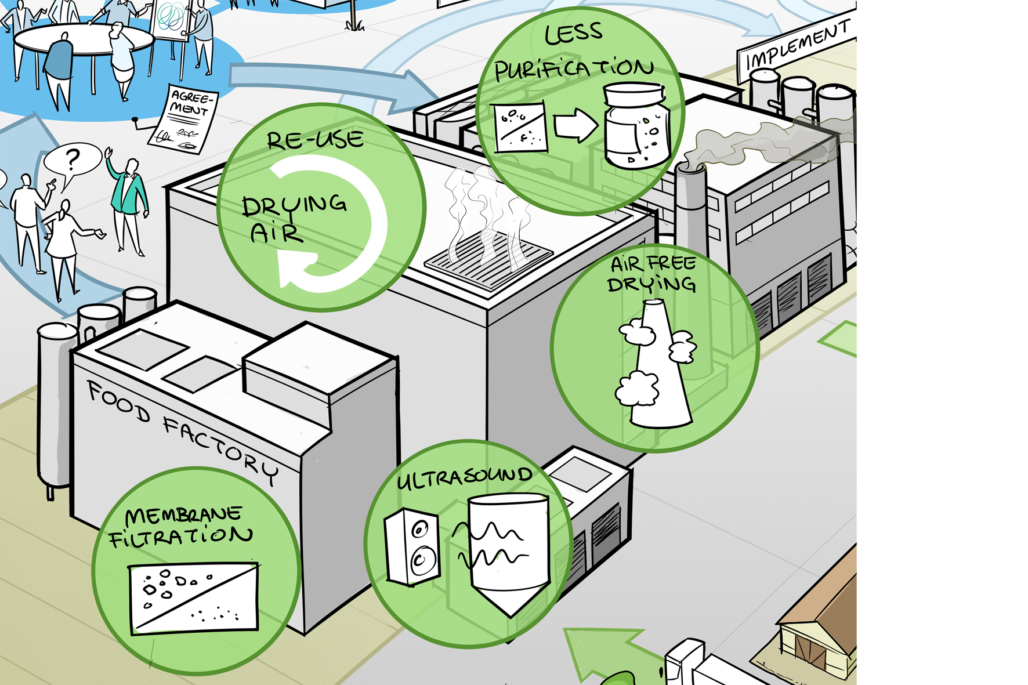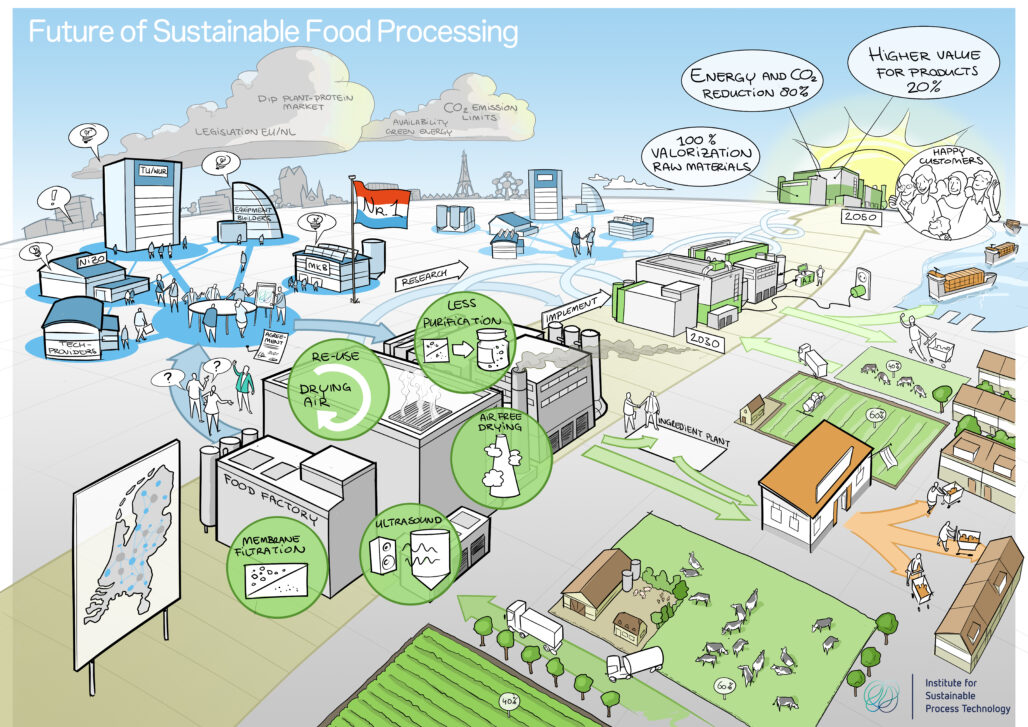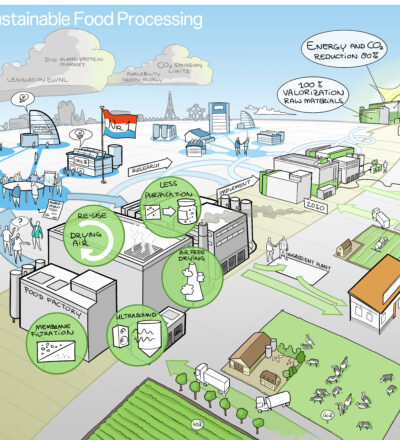To sustainably feed the growing world population, we need to redesign our food industry. New process technologies will help us maximize nutritional values, minimize energy consumption and waste in the food chain. ISPT’s Drying and Dewatering Program works collaboratively with leading food companies in the Netherlands and has now delivered a roadmap to show the path forward.
We envision a future where process technologies are the driving force behind a sustainable food transition. The main focus is on minimizing energy consumption. In this article you find a brief overview of our strategic blueprint.

What do we want to achieve?
By 2050, the food industry aims to achieve heightened sustainability. This is characterized by an 80% reduction in energy consumption and CO2 emissions. Full utilization (100%) of raw materials and crops, and the production of high-quality goods. All while ensuring consumer satisfaction and health. Achieving these goals requires innovation. The Netherlands is recognized for its significant contribution to agri-food innovations globally. The Dutch food industry strives to be the leading player, as symbolized by the Dutch flag. To maintain this leadership position, we must remain focused on the path to our 2050 goal.
The challenges for the food industry
The crucial challenges the food industry faces are symbolized by the grey clouds. The growing emphasis on green energy and CO2 emission limits, highlights the central role of technological innovation. Legislation such as the Paris Agreement and a shift towards plant-based proteins are driving these innovations.


How do we reach our 2050 goals?
The innovations we need to reach our goals, include technological advancements such as:
- air-free drying without CO2 emissions;
- re-use of drying air;
- optimization of membrane filtration;
- utilization of emerging technologies such as ultrasound in dewatering;
- and reduced purification.
Integral to our vision are the implementation of advanced self-learning digital technologies in process control systems and the electrification of processes. These innovations are among the key drivers for achieving sustainable food processing in the future. Other fundamental aspects are improving energy efficiency, minimizing waste streams, and optimizing raw materials.
From 40% plantbased to 60%
Part of the agri-food transition is a shift from 60% bovine proteins to 40% and from 40% plant proteins to 60%. Reducing pasture production and expanding the cultivation of plant proteins in rotating crops are necessary steps to decrease greenhouse gas emissions and enhance biodiversity.
The shift required for a sustainable future in food processing not only generates profitability, but also facilitates increased market share acquisition. This encompasses both plant-based and animal-based products. Hybrid products, consisting of both bovine and plant based ingredients, are also expected to address existing challenges in terms of taste, nutritional value and price. These products are inherent in 100% plant-based alternatives, particularly in the realm of milk products.

This roadmap is designed in cooperation with technical universities, NIZO Food Processing, Wageningen University, WFBR, food technology providers, innovative SME’s, and other experts.

About the Drying & Dewatering Program
Innovations in drying and dewatering are crucial for reducing energy use and CO2 emissions in the Dutch industry. ISPT’s Drying and Dewatering Program collaborates with leading Dutch food companies to develop innovative process technologies. These technologies promote the food transition , explicitly focusing on optimizing energy consumption. Our goal is to develop groundbreaking methods that enhance the sustainability of food production, reducing reliance on traditional energy sources and embracing sustainable, energy-efficient alternatives.
